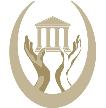In the line of duty – World Press Freedom Day 2018
3 May 2018
World Press Freedom Day falls on 3 May annually and is intended to commemorate and emphasise the fundamental principles of press freedom, assess the state of press freedom across the globe, defend the media from attacks on their independence, as well as to pay tribute to those journalists who have lost their lives in the line of duty.
The final point has never rung truer than today, mere days after the death of 10 journalists in Kabul, the capital city of Afghanistan, on the morning of Monday, 30 May, at the hands of a suicide bomber who was targeting journalists specifically. Extremist group, the Islamic State (ISIS) has since claimed responsibility for the attacks. Many of the journalists who lost their lives in the explosion had been covering the crisis in Afghanistan for years, responsible for keeping the world abreast of developments on the ground in the war-torn country. The death toll in Afghanistan is now at the highest for journalists since at least 2002, according to the New York Times.
The attack speaks to the reality of the lives of thousands of journalists across the world, committed to shedding light on the environments of the places from which they report, particularly spaces ravaged by war, such as Afghanistan and Syria. The safety of journalists is not only a cause for concern in countries experiencing conflict, but also in suppressive regimes such as China and North Korea, where free speech and the freedom of expression are crippled by governments who do not respect these rights.
Reporters Without Borders (RSF) - a monitoring group which reports on the state of media freedom across the world, amongst other functions - reports that this year alone, 23 journalists have been killed in the line of duty. This, along with four citizen journalists (members of the public who report on current affairs, particularly via social media) and two other media assistants. And this is just the first quarter of the year. RSF further states that at present, there are 176 journalists in prisons across the globe, together with 126 citizen journalists and 15 media assistants. These figures exclude those journalists who are in prison for reasons unrelated to their work as journalists, or where that link has yet to be established. Afghanistan, India, Palestine, Ecuador and Yemen are currently leading the journalist death toll, with the highest being Monday’s losses. The bombings are a prime example of the risk at which journalists place themselves in the name of the truth, to expose war, corruption and protect democracies the world over.
The emergence of fake news and the availability of technology to doctor footage and images has contributed to the threat against journalism and information-sharing. It has also raised the importance of reporters who investigate and gather accurate information. They work to counter the proliferation of disinformation and misinformation via sources that misrepresent themselves as credible. Indeed, these sources have been able to dupe even reputable and reliable news houses, as has been seen in the recent past.
Closer to home, South Africa has a robust and healthy media presence, which is protected both under international instruments, the Constitution, as well as domestic legislation.
Section 16 of the Constitution protects the freedom of expression, which extends to freedom of the press and other media. This freedom is and has been fundamental to the development of democracy - especially if one considers apartheid and the manner in which journalists were limited in terms how and what they could report. This is particularly applicable to the banning of political parties, including the current governing party, the African National Congress (ANC). Censorship meant that certain names could neither be mentioned in print nor radio, as well as television. The international press coverage brought attention to the situation in apartheid South Africa and contributed immensely to the unbanning of other parties and eventually, the end of apartheid.
RSF, in its 2018 World Press Freedom Index, placed South Africa’s press at 28 out of 180 countries, and classified it as “mostly free”. It highlighted issues such as intimidation of reporters or media houses which attempted to discriminate against the governing party, as well as the limitation of journalist access to national key points, which is enforced by an apartheid-style piece of legislation. The work of investigative units such as Scorpio and amaBhungane in the exposure of State Capture in the country, has directly contributed to the ousting of corrupt officials and the investigation of charges against the Guptas. In addition, the pressure applied by the press has led to parliamentary inquiries into maladministration in, for example, the Life Esidimeni matter.
This year, the theme for World Press Freedom Day is: “Keeping Power in Check: Media, Justice and The Rule of Law”. It speaks to the importance of an empowering legal environment for press freedom. It further gives special attention to the role of an independent judiciary in ensuring legal guarantees for press freedom and the prosecution of crimes against journalists. It also highlights the role the media plays in holding officials accountable and fostering transparency at government level. The attack in Kabul speaks to the power that is wielded by journalists - disseminating information that could demolish regimes, expose terrorist cells and contribute to world freedom. It emphasises the need - at all costs - to protect press freedom and the lives of journalists who contribute to a fundamental pillar of democracy.
*Read more about press freedom in South Africa in the Centre for Constitutional Rights’ annual publication - the Human Rights Report Card 2018.
By Rebecca Sibanda, Legal Assistant, Centre for Constitutional Rights, 3 May 2018

